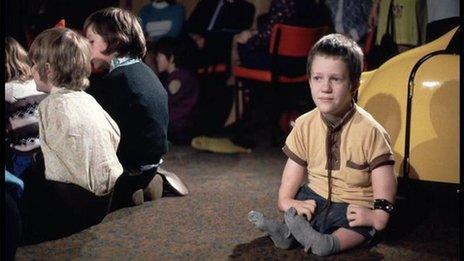Thalidomide: Britons launch legal case
- Published
Brian Davies said victims like him had battled for years to get justice
Eight Britons who believe their disabilities were caused by Thalidomide have launched legal action against the drug's manufacturer and distributor.
The BBC has seen court documents in which the eight, who have a range of disabilities, are claiming damages.
Some of them were rejected by a scheme set up by distributor Distillers which compensated 460 UK survivors in 1973.
The anti-morning sickness drug caused babies to be born with limb defects and damaged eyes, ears and internal organs.
Law firm Slater and Gordon, which is acting for the eight, said papers had been filed at the High Court on behalf of eight people whose mothers took the drug while pregnant.
The claimants are suing Grunenthal, which manufactured the drug, and Diageo Scotland which now owns Distillers.
'Held to account'
Fraser Whitehead, lawyer at Slater and Gordon, said: "Grunenthal and Distillers have always claimed that the Thalidomide disaster was an unavoidable tragedy and that they did everything expected of drug companies at the time. Our research has demonstrated that is nonsense.

Thalidomide
Thalidomide was developed by German pharmaceutical company Grunenthal
It was launched on 1 October 1957
First marketed as a sedative it was then given to pregnant women to combat morning sickness
As many as 10,000 babies worldwide were born with deformities
Thalidomide is still used today to treat the complications of leprosy and multiple myeloma

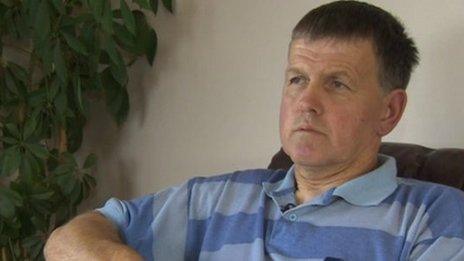
Brian Davies has labelled his 50-year fight "a disgrace"
"Both companies knew their drug was causing severe nerve damage and both were explicitly warned of the possibility Thalidomide might cause severe malformations. Yet the drug was left on the market for many months afterwards.
"It is time those responsible are finally held to account for the mistakes of the past. Grunenthal, in particular, has done little make good the immense damage that it has done and it has to accept responsibility for those affected in the UK."
One of the claimants, Brian Davies, 53, from Gwynedd, said he was previously refused compensation because his arms were not affected.
He said: "It's a disgrace that so many people have been denied justice in this way."
'Right thing'
Thalidomide was frequently used to treat morning sickness in the late 1950s and early 1960s.
When it was withdrawn in late 1961 more than 10,000 babies worldwide had been born with disabilities and only about half of them survived.
A Grunenthal spokesman said: "Grunenthal confirms that the company received an email from Slater and Gordon... announcing that they have been instructed to bring proceedings on behalf of eight claimants.
"Grunenthal has not seen the claims to which they refer and is, therefore, not in a position to comment further."
Diageo said it "takes any matter relating to Thalidomide-injured people very seriously and has a long track record of doing the right thing".
Last year Diageo paid 89 million Australian dollars ($81m, £49m) to more than 100 Australians who suffered birth defects caused by the drug, in a settlement that led to a claim against Grunenthal being dropped.
- Published2 December 2013
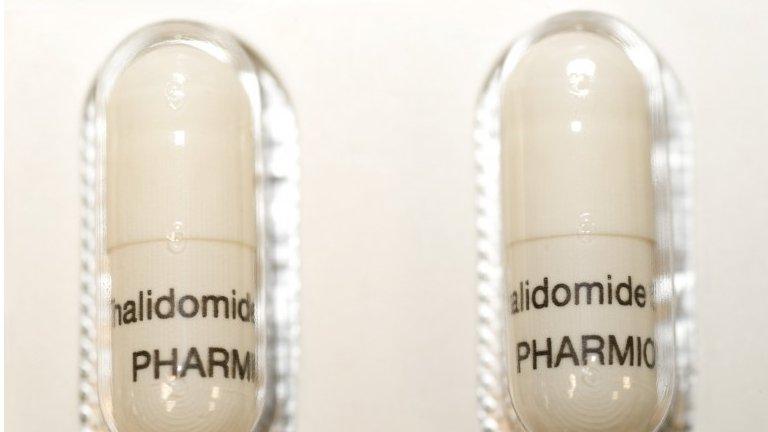
- Published14 October 2013
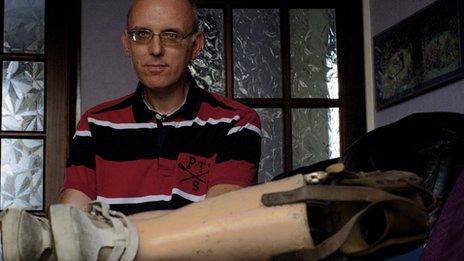
- Published30 July 2013
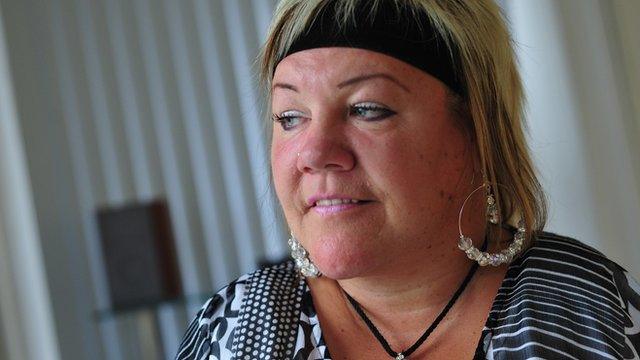
- Published24 July 2013
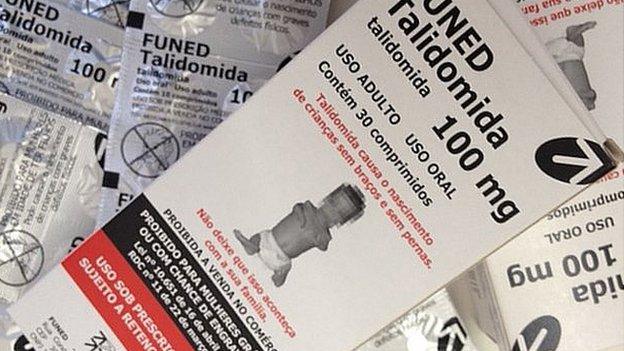
- Published3 November 2011
